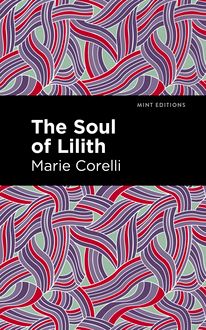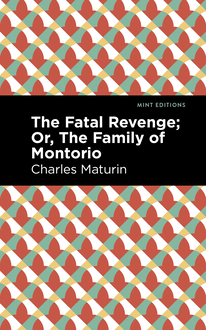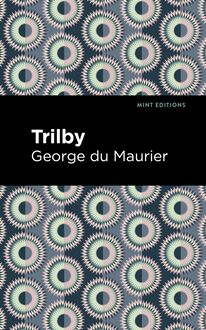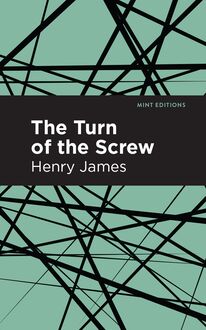-
 Univers
Univers
-
 Ebooks
Ebooks
-
 Livres audio
Livres audio
-
 Presse
Presse
-
 Podcasts
Podcasts
-
 BD
BD
-
 Documents
Documents
-
- Cours
- Révisions
- Ressources pédagogiques
- Sciences de l’éducation
- Manuels scolaires
- Langues
- Travaux de classe
- Annales de BEP
- Etudes supérieures
- Maternelle et primaire
- Fiches de lecture
- Orientation scolaire
- Méthodologie
- Corrigés de devoir
- Annales d’examens et concours
- Annales du bac
- Annales du brevet
- Rapports de stage
La lecture à portée de main
Vous pourrez modifier la taille du texte de cet ouvrage
Découvre YouScribe en t'inscrivant gratuitement
Je m'inscrisDécouvre YouScribe en t'inscrivant gratuitement
Je m'inscrisEn savoir plus
Vous pourrez modifier la taille du texte de cet ouvrage
En savoir plus

Description
Fatal Revenge; Or, the Family of Montorio (1807) is a novel by Charles Maturin. Published under the psueudonym Dennis Jasper Murphy, Fatal Revenge; Or, the Family of Montorio was Maturin’s debut novel. Largely ignored by critics and readers, it managed to draw attention from Sir Walter Scott, who supported Maturin’s efforts and encouraged him to pursue a career as a writer. Despite its humble beginnings, Fatal Revenge; Or, the Family of Montorio is considered a masterpiece of Gothic romance. “Their palaces were haunted by groups of monks, and magicians, and alchymists, and astrologers; and amid the most superstitious state of the country of superstition, the House of Montorio was distinguished by weak and gloomy credulity.” At the siege of Barcelona in 1697, two brothers of mysterious origin fight bravely and gain the respect of their fellow officers. When the fighting has ceased, they are counted among the dead. Gathering his subordinates, their commandant, “acquainted with their name, and their country, and their misfortunes,” begins to tell the story of their cursed family. Fatal Revenge; Or, the Family of Montorio is a story of mystery and terror that engages with timeless themes of loyalty, fantasy, and fate. With a beautifully designed cover and professionally typeset manuscript, this edition of Charles Maturin’s Fatal Revenge; Or, the Family of Montorio is a classic of Irish literature reimagined for modern readers.
Sujets
Informations
| Publié par | Mint Editions |
| Date de parution | 21 juin 2021 |
| Nombre de lectures | 0 |
| EAN13 | 9781513287850 |
| Langue | English |
| Poids de l'ouvrage | 1 Mo |
Informations légales : prix de location à la page 0,0550€. Cette information est donnée uniquement à titre indicatif conformément à la législation en vigueur.
Extrait
The Fatal Revenge; Or, The Family of Montorio
Charles Maturin
The Fatal Revenge; Or, The Family of Montorio was first published in 1807.
This edition published by Mint Editions 2021.
ISBN 9781513282831 | E-ISBN 9781513287850
Published by Mint Editions®
minteditionbooks.com
Publishing Director: Jennifer Newens
Design & Production: Rachel Lopez Metzger
Project Manager: Micaela Clark
Typesetting: Westchester Publishing Services
C ONTENTS P REFACE I NTRODUCTION I II III IV V VI VII VIII IX X XI XII XIII XIV XV XVI XVII XVIII XIX XX XXI XXII XXIII XXIV
P REFACE
The present style of novels is most piteously bewailed by those who are, or say they are, well affected to the cause of literature. Diavolerie, tales fit to frighten the nursery, German horrors, are the best language they give us. Whatever literary articles have been imported in the plague ship of German letters, I heartily wish were pronounced contraband by competent inspectors. But I really conceive that the present subjects of novels and romances, are calculate I to unlock every store of fancy and of feeling. I question whether there be a source of emotion in the whole mental frame, so powerful or universal as the fear arising from objects of invisible terror. Perhaps there is no other that has been at some period or other of life, the predominant and indelible sensation of every mind, of every class, and under every circumstance. Love, supposed to be the most general of passions, has certainly been felt in its purity by very few, and by some not at all, even in its most indefinite and simple state.
The same might be said, à fortiori, of other passions. But who is there that has never feared? Who is there that has not involuntarily remembered the gossip’s tale in solitude or in darkness? Who is there that has not sometimes shivered under an influence he would scarce acknowledge to himself. I might trace this passion to a high and obvious source.
It is enough for my purpose to assert its existence and prevalency, which will scarcely be disputed by those who remember it. It is absurd to depreciate this passion, and deride its influence. It is not the weak and trivial impulse of the nursery, to be forgotten and scorned by manhood. It is the aspiration of a spirit; “it is the passion of immortals,” that dread and desire of their final habitation.
The abuse of the influence of this passion by vulgar and unhallowed hands, is no argument against its use. The magic book has indeed often been borne by a rude ignorant, like William of Deloraine, journeying from the abbey of Melrose with his wizard treasure. The wand and robe of Prospero have often been snatched by Caliban; but, in a master’s hand, gracious Heaven! what wonders might it work!
I have read novels, ghost-stories, where the spirit has become so intimate with flesh and blood, and so affable, that I protest I have almost expected it, and some of its human interlocutors, like the conspirators in Mr. Bayes’s play, to “take out their snuff-boxes and feague it away.” Such writers have certainly made ridiculous what Shakespeare has considered and treated as awful.
Such have occasioned the outcry against converting the theatre of literature into a phantasmagoria, and substituting the figures of a German magic lanthorn, for those forms which are visible to “the eye in a fine frenzy rolling.” But pace tantorum virorum, I have presumed to found, the interest of a Romance on the passion of supernatural fear, and on that almost alone. It is pitiful to deprecate deserved and inevitable censure; every work must have faults, and the Reviewers are heartily welcome to mine. I am not insensible of praise, nor inaccessible, I hope, to animadversion. If youth, in acquaintance with literary habits, and the “original sin” of national dulness, be any mitigation of severity, critical, or eclectic, or of the cold and bitter blasts of the north, let this serve to inform my Readers, that I am four and twenty, that I never had literary friend or counsellor, and that I am an Irishman of the name of
D ENNIS J ASPER M URPHY
D UBLIN ,
December 15, 1806
I NTRODUCTION
At the siege of Barcelona by the French, in the year 1697, two young officers entered into the service at its most hot and critical period. Their appearance excited some surprise and perplexity. Their melancholy was Spanish, their accent Italian, their names and habits French.
They distinguished themselves in the service, by a kind of careless and desperate courage, that appeared equally insensible of praise or of danger. They forced themselves into a all the coup de mains, the wild and perilous sallies that abound in a spirited siege, and mark it with a greater variety and vivacity of character, than a regular campaign. Here they were in their element. But among their brother officers, so cold, so distant, so repulsive, that even they who loved their courage, or were interested by their melancholy, stood aloof in awkward and hesitating sympathy. Still, though they would not accept the offices of the benevolence their appearance inspired, they were involuntarily, always conciliating. Their figures and motions were so eminently noble and striking, their affection for each other so conspicuous, and their youthful melancholy so deep and hopeless, that every one inquired, and sought intelligence of them from an impulse stronger than curiosity. Nothing could be learnt; nothing was known, or even conjectured of them.
During the siege, an Italian officer, of middle age, arrived to assume the command of a post of distinction. His first meeting with these young men was remarkable. They stood speechless and staring at each other for some time. In the mixture of emotions that passed over their countenances, no one predominant or decisive could be traced by the many and anxious witnesses that surrounded them.
As soon as they separated, the Italian officer was persecuted with inquiries about the strangers. He answered none of them; yet he admitted that he knew circumstances sufficiently extraordinary relating to the young men, who, be said, were natives of Italy.
A few days after, Barcelona was taken by the French forces. The assault was terrible; the young officers were in the very rage of the fight; they coveted and courted danger; they stood amid showers of grape and ball; they rushed into the heart and crater of explosions; they literally “wrought in the fire.” The effects of their dreadful courage were foreseen by all, and cries of recal and expostulation sounded around them on every side, in vain.
On the French taking possession of the town, there was a general demand for the brothers. With difficulty the bodies were discovered, and brought with melancholy pomp into the commander’s presence. The Italian officer was there; every eye was turned on him.
There was an appeal in the general silence. The Italian felt and answered it. “No circumstances but these,” said he, “in which I see those brave, unhappy men, would justify me in the disclosure I am about to make. I am acquainted with their name, and their country, and their misfortunes. The discovery cannot affect them now. They are for ever beyond the reach of shame or pain; but for the living, who are not beyond instruction, the tale is intended, and to them may it prove useful.” At intervals which its length required, he related the following story.
I
S æ va Pelopis domus.
— H ORAGE
“Pelops’ cruel offspring.”
About the year 1690, the family of Montorio, one of the most distinguished in Italy, occupied their hereditary seat, in the vicinity of Naples. To the tale of the strange fortunes of this family, it may be necessary to prefix a sketch of its character.
It was marked by wild and uncommon features, such as rarely occur in those of more temperate climates. But in a country, like the seat of these adventures, where climate and scenery have almost as much effect on the human mind, as habit and education, the wonder dissolves, and the most striking exhibition of moral phenomena present only the reflected consequences of the natural.
The general idea of the Italian character was fully realized in that of the Montorio family; weak, yet obstinate; credulous, but mistrustful; inflamed with wild wishes to attain the secrets and communion of another world, yet sunk in the depth of both national and local superstition. Their palaces were haunted by groups of monks, and magicians, and alchymists, and astrologers; and amid the most superstitious state of the country of superstition, the House of Montorio was distinguished by weak and gloomy credulity. The character and habits of the present Count were, like those of his predecessors, singular. In the early part of his life, he had unexpectedly succeeded to his ancestorial wealth and honours, by the sudden death of their possessor and all his family. Shocked by such a concurrence of domestic calamity, the Count had precipitately quitted his castle, nor could he, till after a considerable time, prevail on himself to quit Apulia, and revisit it. When at length he returned, it was visible that the blow, which his spirits had sustained, was irrecoverable. He returned, accompanied by his Countess, his children, and a numerous retinue of attendants, and from that moment, the sight or sound of cheerfulness was banished from the walls of Muralto. The aged domestics, who had resided there in their lord’s absence, and to whom that absence had felt like their own exile, now saw with sorrow, that the change his return had produced was almost for the worse. The habits of the castle and its present possessor, recalled to their memory the former master, and the festivity of happier days, threw a deeper shade over the stately gloom of the present. Of their former lord, they were lavish in commendation; and as it is the nature of enthusiasm to remember only the virtues of the object it delights to praise, while they celebrated the excellences
-
 Univers
Univers
-
 Ebooks
Ebooks
-
 Livres audio
Livres audio
-
 Presse
Presse
-
 Podcasts
Podcasts
-
 BD
BD
-
 Documents
Documents
-
Jeunesse
-
Littérature
-
Ressources professionnelles
-
Santé et bien-être
-
Savoirs
-
Education
-
Loisirs et hobbies
-
Art, musique et cinéma
-
Actualité et débat de société
-
Jeunesse
-
Littérature
-
Ressources professionnelles
-
Santé et bien-être
-
Savoirs
-
Education
-
Loisirs et hobbies
-
Art, musique et cinéma
-
Actualité et débat de société
-
Actualités
-
Lifestyle
-
Presse jeunesse
-
Presse professionnelle
-
Pratique
-
Presse sportive
-
Presse internationale
-
Culture & Médias
-
Action et Aventures
-
Science-fiction et Fantasy
-
Société
-
Jeunesse
-
Littérature
-
Ressources professionnelles
-
Santé et bien-être
-
Savoirs
-
Education
-
Loisirs et hobbies
-
Art, musique et cinéma
-
Actualité et débat de société
- Cours
- Révisions
- Ressources pédagogiques
- Sciences de l’éducation
- Manuels scolaires
- Langues
- Travaux de classe
- Annales de BEP
- Etudes supérieures
- Maternelle et primaire
- Fiches de lecture
- Orientation scolaire
- Méthodologie
- Corrigés de devoir
- Annales d’examens et concours
- Annales du bac
- Annales du brevet
- Rapports de stage




















